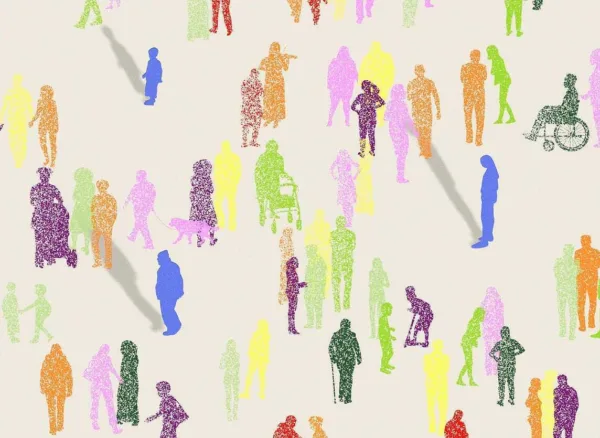Menu

This podcast episode features The Honorable Shirley Ann Jackson, the first African-American woman to lead a top-ranked research university — Rensselaer Polytechnic Institute (RPI) — and Andreas Schleicher, Director for Education and Skills at the Organisation for Economic Co-operation and Development (OECD.) These two global leaders in education speak of nuanced, experiential, community-centered learning opportunities offered within a moral and ethical framework as key components of human flourishing.
Curiosity is fed by education
Dr. Jackson's life and career path include senior leadership positions across academia, government, industry, and research. Born in Washington, D.C., in 1946, Dr. Jackson came of age when women and African Americans were not encouraged to seek opportunity in higher education, especially in STEM fields. Her fortitude, stamina, and sustained curiosity in the face of challenges are an illustration of how flourishing is fed by education. Dr. Jackson and Andreas Schleicher each believe that the kind of curiosity that drove Dr. Jackson is innate to every human being and that it can and should be nurtured by education.
Community is essential
Both Jackson and Schleicher emphasize the importance of community in creating a holistic education experience that offers people a path to their deepest meaning and purpose.
To Dr. Jackson, "Flourishing inherently links to how others live. As I've said, I’m not here alone. And so I can be doing what I do, and I love it and discover exciting things and, but the very fact of my being able to do it depends on a society and a construct that supports that. It also depends upon my having my health and strength to be able to do that. Inherently, then, it makes one look beyond what one is doing in the moment." People must come together and work together to solve global problems and look towards something larger than themselves. "Those greatest challenges or questions are not ones that can be answered in isolation, through the lens of one discipline, one person, one region, one nation," she says. Inter- and multidisciplinary approaches are needed.
"Learning is not a transactional phenomenon. It’s always social; it’s always a relational phenomenon," Schleicher says. He's a proponent of shifting out of classroom hierarchies, away from siloed subjects and rote memorization, and into experiential, multidisciplinary classrooms. He sees the school of the future as having "open walls." Giving community more prominence in educational environments helps young people understand and build aspirations. "Good schools have very dynamic links with all layers of our societies... A school is really a place where everybody learns — not just the children, but the students, the teachers, the parents."
Ethics, values, and self-determination
Schleicher believes that to best serve students and their communities, flourishing education will be grounded in ethics and values, in helping people find meaning for themselves, and for society. To encourage that, he says "we need to create more environments where students can explore, where they can take risks, try out new ideas, where they can work with other students." Learning is also about resilience, a willingness and ability not just to learn, but also to unlearn and relearn when context changes, says Schleicher. Creating learning environments that are agency-based is crucial to advancing holistic education. He sees the teacher of tomorrow as being "less an instructor, but more like a coach, a mentor, a facilitator, a designer of innovative learning environments."
Broadening our picture
Schleicher and Dr. Jackson each talk about the benefits of technology as powerful enabling apparatus in the classroom, but keep what it has to offer in perspective. Dr. Jackson sees the coming together of the physical, the biological, and the digital worlds as an exciting prospect for the advancement of flourishing, and ultimately views technology as a tool that allows its user to be of greater service to others. "One now has advanced tools and technologies to really probe life, at its genetic level, but then to try to understand how that is manifested in a more mesoscopic, or macroscopic way, and therefore affects how we live and how we live can be affected through the mitigation of disease, through the impact we have on the environment, or through technologies that make a living easier, but importantly, can uplift the lives of others." Schleicher sees the importance of new technology for education, but is wary of the ever-increasing influence of social media and digital platforms on society and warns that if we don’t invest in learning and an expansive education, technology will reinforce social silos. With the kind of expansive approach to education that he and others like Dr. Jackson promote, we can build the capacity to "broaden our picture," building trust with others and to "appreciate different ways of thinking, different ways of working, and different cultures." He hopes, with this emphasis on education that nourishes human flourishing, students of the future can "learn to think like an artist and work like an artist, and learn to think and work like a scientist, all at the same time."
Read the transcript from the interview conducted by journalist Richard Sergay, presented by podcast producer and host Tavia Gilbert. Featuring: Dr. Shirley Ann Jackson, 18th president of RPI; Andreas Schleicher, Director for Education and Skills and Special Advisor on Education Policy to the Secretary-General at OECD.
Built upon the award-winning video series of the same name, Templeton World Charity Foundation’s “Stories of Impact” podcast features stories of new scientific research on human flourishing that translate discoveries into practical tools. Bringing a mix of curiosity, compassion, and creativity, journalist Richard Sergay and host Tavia Gilbert shine a spotlight on the human impact at the heart of cutting-edge social and scientific research projects supported by TWCF.




